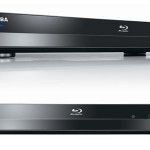Weekly News Roundup (6 September 2009)
Welcome to another WNR. Hope you’ve had a good week. Me? I’ve had a lousy one, and you might be able to see hints of this in my rantings below, which contains 11.4% more bile than my usual efforts. A good rant is actually a good way to finish off a bad week, I find.

Starting with the copyright news, the Canada government is currently in a consultation phase in regards to changes to copyright laws, holding a series of town hall meetings to allow for public input. But this might actually make the copyright lobby look bad, and might make the government think twice about giving away its own citizen’s rights to corporations, and so the all powerful copyright lobby had to take action.
The action includes hiring private security guards and arresting anyone with a different opinion, while changing the format of the town hall meeting as to stack it in their favor. When a Canadian member of parliament (MP), a member of the NDP party, joined students to protest the changes, by handing out flyers informing people of the possibly biased meeting, they were threatened by security guards at the event. And even after the incident, The American Federation of Musicians issued further threats towards the NDP MP, asking her party to penalize her for daring to take part in the democratic process. It also labeled the action of students and the MP, basically involving only handing out flyers, as “disgusting”. Yes, the democratic process can be a bit disgusting at times, especially if it leads to the “wrong” opinion.
But you wonder why so much time and effort is being spent fighting piracy, when the act of fighting piracy itself is quite profitable. Step forward Digiprotect, a company specializing in tracking down online pirates and suing them on behalf of copyright holders. Companies in the same business as Digiprotect has been accused of various unsavoury acts previously, such as hacking into servers and stealing information, but in an interview, Mr. Hein, the account manager of Digiprotect, revealed some very interesting tidbits on how the anti-piracy industry has matured and now employs a specific business model. Mr. Hein claims, and even I have a hard time believing this to be the case, that they actually lease copyright on certain content from copyright holders, release these content on P2P networks as honey pots to attract potential downloaders, and then catch them in the act. And then they will chose the countries that make suing easier and more profitable, and sue those users. There is even a formula to determine how much money to seek, but it’s not related to actual losses or damages – the amount is set so that it’s not too much to make the judge sympathetic to the defendant, but obviously large enough to make the whole process worthwhile. The whole interview is extremely candid and interesting, so it’s definitely worth a read, but the impression you get out of all this is that it is, in the end, all about profit for companies like Digiprotect. And if governments pass laws to allow for three strike based Internet bans, you can bet that companies like Digiprotect will set to profit, as someone will need to do doing all the hard work of tracking down who the copyright holders deem unsuitable to be connected online.
And ISPs will then have to be the one forking over the money to companies like Digiprotect, the cost of which will then be passed onto the consumer, even those who has never downloaded anything illegal. This is just one of the reasons why UK ISPs have joined forces to oppose the government’s Internet anti-piracy banning plans. In an open letter, the CEOs of some of UK’s largest ISPs have stated their joint opposition to such a plan, due to the cost issue and also due to the fact that they can see innocent customers being caught up in the system and being banned for no good reason. This is not to mention the burden to the tax payer of having a government agency to deal with the thousands upon thousands of Internet banning requests that will flood in. Per week. But the technophobic government, mostly due to their lack of understanding of the issues, will side with the lobby that has the most pull, and Hollywood and the music studios are where the money is. ISPs, and all Internet users, tax payers, will have to the ones to foot the bill so these billion dollar corporations can resist change for a few more years.
And if you want further evidence of the fear of digital technology and the industry’s reluctance to move on, all you have to do is to look at the MPAA’s second attempt to add DRM to HDTV. They have asked the FCC again to look into the issue of selectable output for HDTV, to close the so called “analog hole”. The MPAA wants to prevent people recording 1080p TV broadcasts to VHS tape, which I wasn’t aware was such a big issue piracy wise. Do people still use VHS tape? But of course, it’s not just VHS tape, it’s the analog recording of digital content, whether it’s done so on a VCR, your computer’s analog video inputs or on your DVD recorder. But again you must ask, does analog recording from TV lead to a lot of piracy? So much that the MPAA must spend considerable resources to lobby the FCC for changes, especially after it has already failed in their previous attempt not too long ago due to opposition from, um, practically everyone including the former FCC chairman. And the proposed changes, which in essence means DRM for HDTVs, means that everyone will have to upgrade their HDTV equipment again so that they are DRM compatible. The MPAA argues that this is actually a pro-consumer move, because by adding DRM to everything, the content owners will stop being anti-consumer by holding back content for longer periods. Awesome!

And on that note, we move effortlessly to HD news. Cnet has reviewed Oppo’s new Blu-ray player, the BDP-83, and declared it the best Blu-ray player they’ve seen so far. The superior picture quality was as expected, given Oppo’s experience with DVD upscaling and the price tag of the machine, which puts it in the middle/upper end of the price range for Blu-ray players. The fact that the player supports pretty much every format under the sun (except for HD DVD – more on that later) also helped – DVD-Audio, SACD, and all Blu-ray profiles are supported, as well as DivX, AVCHD playback.
But it’s also the little things that Cnet noted, including a bundling of an HDMI cable that many players neglect. The player also comes in a soft cloth bag, which is a nice touch. Cons include the lack of Wi-Fi, no support for video streaming services and the high price. The problem for people who don’t live in Blu-ray region A is that the player is pretty useless, but there’s ongoing work on region-free firmware and it already works if you don’t mind using an older firmware. That there’s no official region B or region-free version is a big shame, and once again, blame goes towards the few selected greedy studios for forcing region coding upon us.
From one special Blu-ray player, to another, perhaps even more special one. That’s right, Toshiba’s first Blu-ray player, the BDX2000, will soon be available in stores for under $250. It is special of course because this is the first and only Blu-ray player Toshiba has produced so far, and it comes 18 months after the death of their HD DVD format, the failed competitor for Blu-ray. The player itself is nothing special from the information released so far, a pretty standard affair with the only notable feature being SD card support. There’s no NetFlix or Amazon streaming services as per the LG/Samsung/Panasonic players. There’s no mention of DVD upscaling or use of the Cell chip to enhance Blu-ray/DVD playback. And it doesn’t even play HD DVDs, which the press release specifically mentions. I guess that’s forgivable for a first attempt, and we may yet hear more about the video processing features as we get closer to the release date, but one can’t help being slightly underwhelmed. A special discount for HD DVD player owners would be welcomed as well.
![]()
And in gaming, the focus is still on the PS3 Slim. Users who have got their hands on one have benchmarked it against the PS3 Fat, and found it to be both slower and faster. It was faster in game loading, but slower in other areas such as booting and Blu-ray disc loading. Those using their fat PS3s for Blu-ray only will not need to upgrade, it seems.
To go with the PS3 Slim, firmware version 3.00 was released for the PS3 (all versions) as well, replacing the 2.80 firmware released in June. So far, as with most of the PS3’s firmware releases, the response to the new firmware has been extremely mixed. The usual report of bricked PS3s (or at least the Blu-ray drives), plus problem unique to this version including controller issues, as well as the fact that with such a major version number, almost nothing major was added feature wise, has some PS3 fans fuming. The use of the major version number, possibly more to denote the introduction of the PS3 Slim than anything else, is what I think confused many people, who were expecting a “New Xbox Experience” type update, but instead got version 2.85 instead.
More Xbox 360 rumours, this time for a new 250 GB Xbox 360 with two wireless controllers. But it’s supposed to retail $100 more than the PS3, and I just can’t see it happening.
So that’s another WNR out of the way. Not as much bile as I had imagined when I first started writing, but too much anger, and you become numb as a result. Or something. See you next week.



